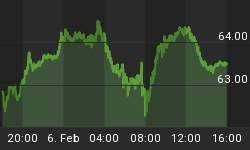The U.S. Real Estate Market and its implications on Stock Markets
The most recent numbers from the U.S. show that the real estate market is about to correct. While until recently it was not entirely clear whether the correction would happen in the form of a soft or a hard landing, the latest figures released point rather to a hard landing. The risk adverse investor is well advised to mentally consider possible implications related to such a scenario now and to decide on possible actions. Following we shall attempt to just do this for you and to guide you in the evaluation of possible actions.
To tune into the topic ...
Lon Witter (Barron's, Aug. 21, 2006) argues that there has not been a housing bubble but a lending bubble. Look at this data:
- 32.6% of new mortgages and home-equity loans in 2005 were interest only, up from 0.6% in 2000;
- 43% of first-time home buyers in 2005 put no money down;
- 15.2% of 2005 buyers owe at least 10% more than their home is worth (negative equity);
- 10% of all home owners with mortgages have no equity in their homes (zero equity);
- $2.7 trillion dollars in loans will adjust to higher rates in 2006 and 2007.
Whether lending or housing bubble the effects of a hard landing of the real estate market may be significant. Fact is that real residential investment in the U.S. fell in Quarter 2, 2006 at an annualized rate of 6.4%. For the 3rd and 4th quarter, it is assumed that the housing sector will contract at an even faster rate with estimates reaching 10-15%. Homebuilder Toll Brothers said the current slump in residential construction is unlike any it has seen in 40 years as it became the latest to warn of a glut in new homes for sale and a slowdown in the closely watched real estate market. (CNNMoney.com, Aug. 9, 2006)
We foresee that a hard landing may trigger 5 Effects:
- Direct Effect: The real estate market in the U.S. shrinks in regards to volumes and prices.
- Wealth Effect: Shrinking prices will destroy household wealth and credit access of homeowners. At the same time, given that interest rates have increased since the middle of 2004, the servicing of debt continues to increase.
- Employment Effect: In the last years, up to 30% of employment growth in the U.S. was created directly and indirectly by the housing boom. The reverse effect may now occur.
- Financial markets and Interest rate Effect: Housing stocks have already been hit. So far, investors have not factored the potential of a hard landing into their general investment decisions.
- Global Effect: If U.S. housing scenario materializes triggering the above 4 Effects, then there will be a negative impact on global economies and financial markets.
What are possible chains of events from the Effects? From the U.S. perspective we imagine the following to happen:
- Home equity values shrink and turn negative. The huge amounts of credit extracted from home equity in the last years by the U.S. consumer will be a thing of the past. The consumer will cease to support U.S. economic growth.
- Mortgage defaults and foreclosures increase. As a result, latest then, lending standards by (mortgage) lenders tighten leading to a further contraction of the residential market.
- Unemployment will increase not only in the construction industry but in all sectors related to real estate: Realtors, lawyers, credit and securitization banks, etc.
- Clearly, corporate earnings in many sectors may be hit hard.
- The consumer may turn to a saver. Faced with debt servicing obligations over his head combined with lower spendable income due to high energy prices, the typical U.S. consumer may disappear for some time and refocus from immediate gratification towards a longer-term horizon.
- All this will result in shrinking global demand for consumer items and at least temporarily for commodities and energy. Economies depending on exports to the U.S. will feel the fallout. Other real estate markets will correct as well.
- The financial markets will be affected negatively due to lower corporate earnings, a higher rate of credit defaults and bankruptcies. What we suspect but are not able to assess is the potential impact on the most aggressive bank lenders, the derivatives markets, etc.
When will this possible process start to "move"? One answer may be found in the NAHB homebuilders' index that leads the S&P 500 by 12 months and with a near 80% correlation.

So far, investors do not seem to have factored the "housing scenario" into their decisions. What we are apprehensive about is that when they do, then the above lag of 12 months may be cut short and this fast. This would result in a U.S. recession with global implications. Interest rates in the U.S. and elsewhere will level or be reduced again, resulting in a USD weakening against currencies with relative stronger economies.
Conclusions and Recommendations:
As to the outlook for the stock markets, we conclude that the air for further upside potential is getting thinner. We recommend increasing the cash portion while staying invested in selected stocks. After a long drought in bonds, it may now be worthwhile again to consider buying medium-term paper.
With or after a market correction, there should be excellent if not extraordinary buying opportunities for the cautious investor with a high cash quote. While for the risk taker there may still remain some upside potential in the current markets ... do not miss the exit on time! Remember: Making up capital losses is difficult.















